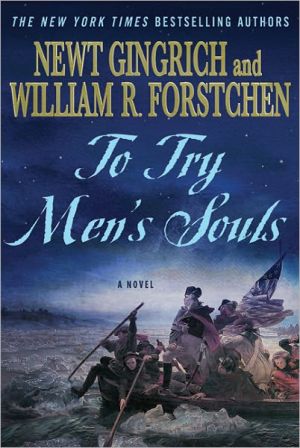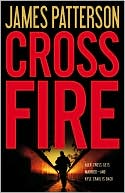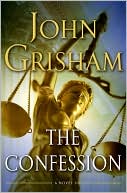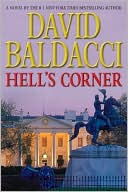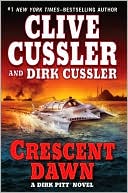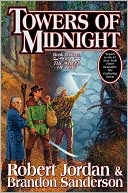To Try Men's Souls: A Novel of George Washington and the Fight for American Freedom
"After two bestselling series examining the Civil War and WWII, Newt Gingrich and William R. Forstchen have turned their sharp eye for detail on the Revolutionary War. Their story follows three men with three very different roles to play in history: General George Washington, Thomas Paine, and Jonathan Van Dorn, a private in Washington's army." "The action focuses on one of the most iconic events in American history: Washington crossing the Delaware. Unlike the bold, courageous General in...
Search in google:
This Revolutionary War novel provides a rare and personal perspective of the men who fought for, and founded the United States of America.Publishers WeeklyAfter hacking their way through the Civil War and WWII, former House Speaker Gingrich and historian Forstchen take on the Revolutionary War with decidedly mixed results. Sharing narration duties are Thomas Paine, George Washington and Jonathan van Dorn, a young private in Washington's army. From Washington's crossing of the Delaware River to a daring night raid on the better-armed Hessians, the authors do a decent job of depicting the dire plight of the Continental Army, though the big chunks of backstory wedged into the narrative add little texture while slowing the pace dramatically. Historical cameos abound, and these, combined with the attention devoted to the gritty details of army life, help to offset Washington's acts of patriotic melodrama in what is surely to become another popular book for Gingrich and Forstchen. (Oct.)
CHAPTER ONE\ *\ • *\ Christmas Night\ McConkey’s Ferry, Pennsylvania\ Nine Miles North of Trenton, New Jersey\ December 25, 1776\ 4:30 P.M.\ \ Cold.\ It is so cold, so damnably cold, he thought, pulling his hat lower in an attempt to shield his face from the wind and the driving rain. His woolen cape was soaked through, water coursing down his neck, his uniform already clammy. Though his knee- high boots were of the fi nest calfskin, they were soaked as well and his pants sopping wet halfway up the thigh as a result of his having slipped several times walking along the banks of the flood- swollen Delaware River. Another gust of wind out of the east kicked up spray that stung his face, and he turned his back as it swept by, roaring through the treetops and up the ridge on the Pennsylvania side of the river.\ “This damn storm will play hell with moving the artillery across.” General George Washington, commander of what had once been so valiantly called the Continental Army of the United States of America, turned toward the speaker, his artillery chief, Colonel Henry Knox. Rotund at what had to be three hundred pounds and powerful looking, towering several inches over Washington’s six foot, two inches, the artilleryman was shivering, his spectacles misted by the rain. Knox looked pathetic, this bookseller turned warrior who should have been in his store in Boston, resting by a crackling fire rather than out on an evening such as this.\ “They’ll cross. They have to cross,” Washington replied calmly. “This wind is just as cold for the Hessians as it is for us. They may not be very good at picketing in this kind of storm.” He wondered if Knox and the others gathered nearby, Generals Stirling and Greene, their orderlies and staff, were waiting for the most obvious of orders on a night like this, just waiting for him to sigh and say, “Return the men to their encampments.” He shook his head, shoulders hunched against the spates of rain, which were turning to sleet.\ He looked across the river, to the east, to the Jersey shore. In his haunted memories, memories that did indeed haunt, he could see that other river bordering New Jersey sixty miles to the east . . . the Hudson, and just beyond the Hudson . . . the East River. Merciful God, was it but five months ago we were arrayed there in our proud defiance? Another gust swept across the Delaware, but this time he did not turn away from it.\ How hot it had been during those days of August. How proud we were. How proud and confident I was, he thought. He shook his head at the memory of it. Our victory at Boston and the British withdrawal from that port had misled all of us into an absurd overconfidence. We had marched to New York in anticipation of the next British move with the satisfaction of having driven off the army of the most powerful country in the world and were expecting to do so again with ease.\ On the very day that the Declaration was read publicly for the first time, the vanguard of King George’s reply was coasting Long Island, bearing toward New York’s outer harbor. He had second- guessed the move months before, and so had moved his army, fresh from their triumph at Boston, on the long march south to defend New York. Filled with confidence, so many had boasted that if the British and their hireling Germans, commonly called Hessians, did attempt to return there, this new army of America would make short work of them.\ Arriving in New York the Continentals had set to work with vigor, building bastions, fortifications, and strong points, ringing the harbor with hundreds of guns and near to thirty thousand troops. Most of the troops he had commanded during the long siege of Boston had been New Englanders. It had been a difficult command and one, at first, not easily accepted. The men of Massachusetts felt one of their own should be in command, for, after all, was it not their state that had stood up first, and was it not their state where the battle was being fought? It had taken the utmost of tact to manage them in a situation that would have caused any regular officer of the British army to howl with rage or derision or both. Yet manage them he did, slowly earning their begrudging respect.\ As they set to work building their fortifications around New York Harbor, reinforcements flooded in from the other states, transforming the army. There were tough backwoodsmen from the frontiers of Pennsylvania, western New York, Virginia, and the Carolinas joining spit- and- polish regiments from the tidewater of Chesapeake Bay and unruly militia by the thousands from Jersey, lower New York, and Connecticut.\ His army swelled until there were more men than the entire population of Philadelphia, America’s most populous city. The worry then, added to when the invasion would strike, was simply keeping so many men fed, housed, and healthy and not at each other’s throats. As to the feeding and housing, the need had been met, for the countryside was rich; supplies could be floated down the Hudson Valley and drawn in from the fertile Jersey countryside. As to health, that soon broke down as it would in almost any army that stayed in camp. Smallpox struck thousands, and hundreds perished, but such was to be expected even in the best tended of armies. As to stopping the men from going at each other’s throats, that had proven near impossible at times.\ Though he would never admit it within the hearing of a single living soul, the New Englanders struck him as a haughty and ill- bred lot, lacking in the refinements a gentleman planter of Virginia expected of them. He was not the only person in the command to carry such feelings, and nearly all others expressed them openly, vocally, and at times violently. He actually started to pray that the British would return, and soon, for, if not, the army might very well rend itself apart. And they had come, as if in answer to that prayer, and proved reality a curse. In the first week of July the vanguard appeared; in the next weeks, more and yet more— ships of the line, frigates, fast sloops and brigs, supply ships— and then the transports brought regiment after regiment of En gland’s finest. How ironic that with each passing day he could ride down to the narrows between Long Island and Staten Island and with telescope watch the ranks disembarking onto Staten Island. Regimental standards he remembered with such admiration from the last war floated on the breeze, and when the wind came from the west he could even hear their bands playing. And alongside men who were once old comrades were the blue uniforms of the regiments from Hesse and Hanover, men who at first were merely scorned, but soon would be feared by every man in his army.\ The Howe brothers, Richard in command of the navy, William the army, had made their arrangements in a ponderous, leisurely fashion, the intent obvious, to overawe before the first shot was fired. There had even been diplomatic protocols observed, of offers of reconciliation if only Washington and his rabble would ground arms, renew allegiance to the king, and return peaceably to their homes. The offers, of course, had been met with scorn and contempt. Officers around him had boasted that once swords were crossed, it would be the British who begged for mercy; before summer was out the entire lot of them would be sent packing to their humiliated master, George the Third.\ Another gust of wind swept in from across the frozen plains of New Jersey, racing across the river, causing him to shiver again as the frigid rain lashed his face. Few boasted now, few indeed.
\ From Barnes & Noble"The real war will never get in the books," Walt Whitman once lamented. If that was true of the Civil War, how much more true would it be of the even more distant Revolutionary War? Apparently recognizing those odds, in this historical novel, Newt Gingrich and William Forstchen have tried mightily to give 21st-century readers a visceral sense of an 18th-century struggle. To Try Men's Souls renders the fight for American freedom through the lives of three men: General George Washington, masterful pamphleteer Thomas Paine, and Jonathan Van Dorn, a lowly private in Washington's army. Thus, this book presents the struggle as it was experienced by three very different men who shared nothing but the dangers the war thrust upon them. A solid addition to Gingrich's well-researched series of novels about American wars.\ \ \ \ \ Publishers WeeklyAfter hacking their way through the Civil War and WWII, former House Speaker Gingrich and historian Forstchen take on the Revolutionary War with decidedly mixed results. Sharing narration duties are Thomas Paine, George Washington and Jonathan van Dorn, a young private in Washington's army. From Washington's crossing of the Delaware River to a daring night raid on the better-armed Hessians, the authors do a decent job of depicting the dire plight of the Continental Army, though the big chunks of backstory wedged into the narrative add little texture while slowing the pace dramatically. Historical cameos abound, and these, combined with the attention devoted to the gritty details of army life, help to offset Washington's acts of patriotic melodrama in what is surely to become another popular book for Gingrich and Forstchen. (Oct.)\ \ \ Library JournalIn an intriguing departure from their two alternative history series on the Civil War and World War II, Gingrich and Forstchen marvelously retell the story of one of the darkest periods in American history, the Christmas of 1776. George Washington's army, defeated and starving, is in tatters and devastated, both physically and emotionally. Washington desperately needs a victory and pins all his hopes on a surprise raid on Hessian headquarters at Trenton, NJ. The battle for Trenton is told through Washington's agonized thoughts, as well as through the viewpoint of Thomas Paine, who wants to recapture the magic of Common Sense and inspire a nation, and Jonathan Van Dorn, an idealistic young American soldier. The American victory at Trenton was far from ordained; instead, it was almost miraculous and probably saved the American Revolution. VERDICT Grim, gritty, realistic, accurate, and splendid, this is a soaring epic of triumph over almost unimaginable odds. [See Prepub Alert, LJ 7/09.]—Robert Conroy, Warren, MI\ \ \ \ \ Kirkus ReviewsHistorically minded Gingrich and Forstchen (Days of Infamy, 2008, etc.) fix their eyes on the Revolutionary War and the pivotal victory that saved America. Dec. 25, 1776. General George Washington, at the head of a ragtag, half-starved, oft-beaten army, is about to give his fledgling nation an unforgettable Christmas present. The Hessian mercenaries hired by King George are quartered in tiny Trenton, snug and smug, wallowing complacently in the limited pleasures of the season. Outside, sleet and bone-chilling wind relentlessly punish an exposed Continental Army. Wandering among the soldiers and sharing their misery is Thomas Paine, whose pen has been a goad to British sensibilities and a spur to American unrest. Now, however, Tom's under pressure. A clamor has risen on every side for a successor to his Common Sense, which sold 100,000 copies and fired up rebellious hearts throughout the colonies. Even Washington importunes him: "You must write something! Anything!" But the great pamphleteer suffers writer's block until he comes upon a campfire surrounded by a handful of hard-used militia men, including the fictitious 15-year-old Jonathan van Dorn. Suddenly a quarrel develops. Enraged at what he senses is a looming defection, young van Dorn cries out, "You were nothing but a patriot when the sun was shining but now that winter is here? My God . . . how you try my soul." And the rest, as they say, is history. Writer's block vanished, Tom gets his theme, Washington gets his victory and the overconfident Hessians get their comeuppance. The prose is rich in platitudes, especially when the underimagined characters are making speeches to each other. It takes more than vividly rendered battlescenes to make compelling historical fiction.\ \ \ \ \ From the Publisher"Surely to become another popular book for Gingrich and Forstchen."—Publishers Weekly "This is the essence of the iconic battlefield tale superbly and vividly told in Gingrich and Forstchen's latest historical novel.... This is one of the best historical novels you will ever read!"—BookLoons.com\ \
